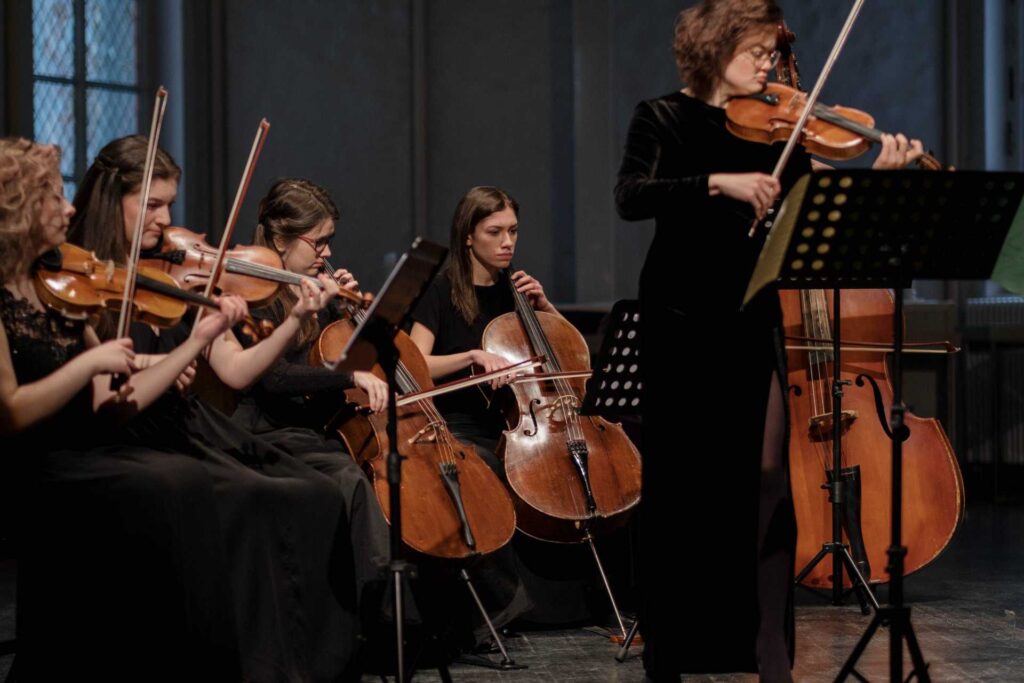Introduction
Classical music, a centuries-old tradition, has been an integral part of Western culture, shaping the landscape of music and influencing countless composers and musicians. With its roots in the Renaissance, Classical music has evolved through various eras, each with its distinct characteristics and prominent figures. In this article, we will explore the world of classical music, focusing on the Baroque, Classical, and Romantic periods, and delve into the lives and works of some of its most renowned composers.
- The Baroque Period (1600-1750)
The Baroque period marked the beginning of the modern classical music era, characterized by intricate ornamentation, counterpoint, and the use of basso continuo (a continuous bass line). Baroque music often showcased dramatic contrasts in dynamics and texture, with compositions featuring complex layers of voices or instruments. Some of the most famous Baroque composers include:
- Johann Sebastian Bach: A prolific German composer and organist, Bach is considered one of the greatest composers of all time. His vast body of work includes the Brandenburg Concertos, Mass in B Minor, and the Goldberg Variations.
- George Frideric Handel: A German-born, British Baroque composer, Handel is best known for his operas, oratorios, and instrumental compositions. His most famous works include the Messiah, Water Music, and Music for the Royal Fireworks.
- Antonio Vivaldi: An Italian composer and violinist, Vivaldi is famous for his concertos, particularly The Four Seasons, a set of four violin concertos that depict the changing seasons.
- The Classical Period (1750-1820)
The Classical period was characterized by clarity, simplicity, and balance, with compositions often adhering to strict forms and structures. This period saw the development of the symphony, sonata, and concerto, as well as the establishment of the modern orchestra. Some of the most renowned Classical composers include:
- Wolfgang Amadeus Mozart: A child prodigy, Mozart began composing at the age of five and produced more than 600 works in his short life. His contributions to opera, symphony, and chamber music are unparalleled, with notable works such as Don Giovanni, The Magic Flute, and Symphony No. 40.
- Ludwig van Beethoven: A German composer and pianist, Beethoven is considered one of the most important figures in Western classical music. His work spans the Classical and Romantic periods, with famous compositions including the Ninth Symphony, Moonlight Sonata, and the Fifth Symphony.
- Franz Joseph Haydn: An Austrian composer, Haydn is often called the “Father of the Symphony” and the “Father of the String Quartet” due to his significant contributions to these forms. His most famous works include the Surprise Symphony, The Creation, and the London Symphonies.
- The Romantic Period (1820-1900)
The Romantic period in classical music was marked by an emphasis on emotion, individualism, and personal expression. Composers experimented with new forms, harmonies, and expanded orchestras, often drawing inspiration from literature, art, and nature. Some of the most notable Romantic composers include:
- Frederic Chopin: A Polish composer and pianist, Chopin is best known for his expressive piano compositions, including nocturnes, waltzes, and mazurkas. His work often evokes a deep sense of emotion and nationalism.
- Richard Wagner: A German composer and conductor, Wagner is famous for his groundbreaking operas and innovative use of leitmotifs (recurring musical themes). His most famous works include the four-opera cycle, The Ring of the Nibelung, and the opera Tristan undIsolde
- Pyotr Ilyich Tchaikovsky: A Russian composer, Tchaikovsky is renowned for his emotionally charged symphonies, concertos, and ballets. His most famous works include Swan Lake, The Nutcracker, and the 1812 Overture.
- Johannes Brahms: A German composer and pianist, Brahms is considered one of the leading musicians of the Romantic period. His compositions include symphonies, concertos, and chamber music, with notable works such as the Symphony No. 1, Hungarian Dances, and the Lullaby.
- Claude Debussy: A French composer, Debussy is often regarded as the first Impressionist composer, although he rejected the label. His innovative use of harmony, texture, and tonality paved the way for modern classical music. His most famous works include Clair de Lune, La Mer, and Prelude to the Afternoon of a Faun.
- Beyond the Romantic Period: 20th Century and Contemporary Classical Music
The 20th century and beyond have seen an explosion of innovation and experimentation in classical music, with composers exploring new forms, techniques, and styles. Some notable 20th-century and contemporary composers include:
- Igor Stravinsky: A Russian-born composer, Stravinsky is known for his revolutionary approach to rhythm and harmony. His groundbreaking ballets, The Rite of Spring and The Firebird, are considered landmarks in the history of classical music.
- Arnold Schoenberg: An Austrian composer, Schoenberg pioneered the 12-tone technique, which challenged the traditional tonal system and laid the foundation for atonal music.
- Philip Glass: An American composer, Glass is known for his minimalist style, characterized by repetitive structures and simple harmonies. His works include operas, symphonies, and film scores, such as Einstein on the Beach, Koyaanisqatsi, and The Hours.
- Women Composers in Classical Music
Though often overlooked, women composers have made significant contributions to classical music throughout its history. Breaking through societal barriers and challenging gender norms, these trailblazing composers have enriched the classical music landscape with their unique perspectives and creative talents. Some notable women composers include:
- Hildegard of Bingen: A medieval abbess, mystic, and composer, Hildegard of Bingen is one of the earliest known female composers. Her sacred monophonic chants, such as Ordo Virtutum, showcase her visionary approach to music and spirituality.
- Clara Schumann: A renowned pianist and composer, Clara Schumann made a lasting impact on the Romantic period with her piano compositions, lieder, and chamber music. Her works, such as the Piano Trio in G minor, continue to be celebrated for their emotional depth and technical mastery.
- Fanny Mendelssohn: The older sister of Felix Mendelssohn, Fanny was a talented composer in her own right. She composed over 450 works, including piano pieces, chamber music, and songs, demonstrating her keen understanding of musical form and expression.
- Amy Beach: An American composer and pianist, Amy Beach was the first successful American female composer of large-scale art music. Her works, including the Gaelic Symphony and Piano Concerto in C-sharp minor, showcase her Romantic style and lyrical sensibilities.
- Florence Price: A pioneering African-American composer, Florence Price was the first African-American woman to have her symphonic compositions performed by a major American orchestra. Her music, which blends European classical traditions with African-American folk melodies, includes symphonies, concertos, and choral works.
- Film Scores and Classical Music
In the 20th and 21st centuries, classical music has found a new avenue for expression in the world of film. Film composers draw on classical techniques and structures to create evocative and memorable scores that enhance the cinematic experience. Some renowned film composers include:
- John Williams: With iconic scores for films such as Star Wars, Jaws, and Harry Potter, John Williams has become one of the most celebrated film composers of all time. His music is characterized by sweeping melodies, lush orchestrations, and a keen sense of drama.
- Ennio Morricone: An Italian composer, Morricone is known for his innovative and emotive film scores, particularly for the Western genre. His most famous works include the scores for The Good, the Bad and the Ugly, Cinema Paradiso, and The Mission.
- Hans Zimmer: A German film composer, Hans Zimmer has created some of the most recognizable film scores of the past few decades, including The Lion King, Gladiator, and Inception. His use of electronic elements, powerful orchestration, and atmospheric textures has garnered him critical acclaim and a wide fan base.
Summary
Classical music, with its rich history and diverse range of styles, composers, and eras, has left an indelible mark on the cultural landscape. From the ornate complexity of the Baroque period to the emotional intensity of the Romantic era, and from the contributions of women composers to the impact of film scores, classical music continues to evolve and inspire generations of musicians and listeners. As we explore the works of Mozart, Beethoven, and other great composers, we gain a deeper appreciation for the beauty, complexity, and enduring legacy of classical music.

